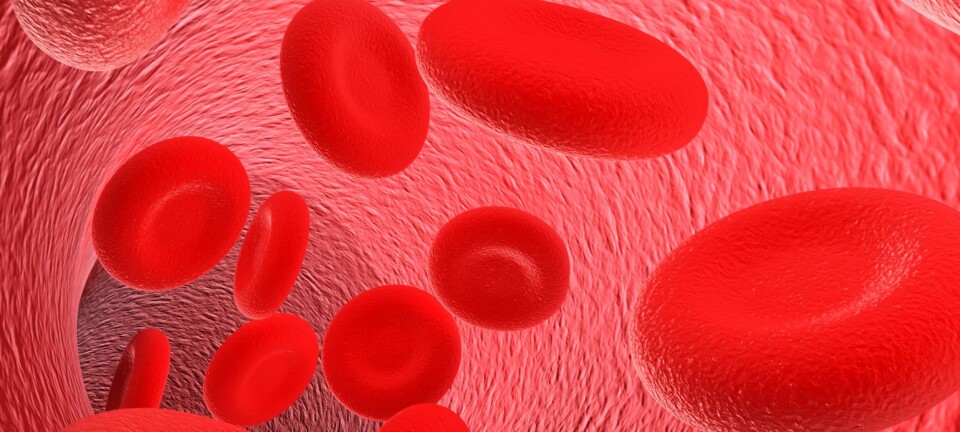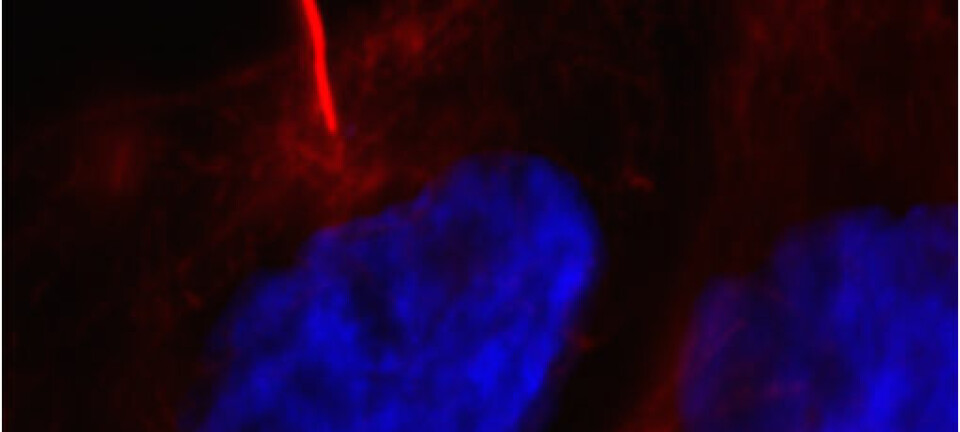An article from Norwegian SciTech News at NTNU

Feed your genes
The genes have spoken: your dinner plate should be divided into three, and you should eat six times a day.
Denne artikkelen er over ti år gammel og kan inneholde utdatert informasjon.
If you could ask your genes to say what kinds of foods are best for your health, they would have a simple answer: one-third protein, one-third fat and one-third carbohydrates.
That’s what recent genetic research shows is the best recipe to limit your risk of most life-style-related diseases.
Food affects gene expression
Researchers Ingerid Arbo and Hans-Richard Brattbakk at NTNU have fed slightly overweight people different diets, and studied the effect of this on gene expression. Gene expression refers to the process where information from a gene’s DNA sequence is translated into a substance, like a protein, that is used in a cell’s structure or function.
“We have found that a diet with 65 per cent carbohydrates, which often is what the aver-age Norwegian eats in some meals, causes a number of classes of genes to work overtime,” says Berit Johansen, a biology professor at NTNU. She supervises the project’s doctoral students and has conducted research on gene expression since the 1990s.
“This affects not only the genes that cause inflammation in the body, which was what we originally wanted to study, but also genes associated with the development of cardiovascular disease, some cancers, dementia, and type 2 diabetes – all the major lifestyle-related diseases,” she says.
Dietary advice and disease
These findings undercut most of the underpinnings for the diets you’ve heard will save you. It is only now that researchers are figuring out the relationship between diet, digestion and the effect on one’s health and immune system – so they can now say not only what kinds of foods are healthiest, but why.
“Both low-carb and high-carb diets are wrong,” says Johansen. “But a low-carb diet is closer to the right diet. A healthy diet shouldn’t be made up of more than one-third carbohydrates - up to 40 per cent of calories - in each meal, otherwise we stimulate our genes to initiate the activity that creates inflammation in the body.”
This is not the kind of inflammation that you would experience as pain or an illness, but instead it is as if you are battling a chronic light flu-like condition. Your skin is slightly redder, your body stores more water, you feel warmer, and you’re not on top mentally. Scientists call this metabolic inflammation.
The body's arms race
Johansen argues that diet is the key to controlling our personal genetic susceptibility to disease. When we consume too many carbohydrates and the body is triggered to react, the immune system mobilizes its strength, as if the body were being invaded by bacteria or viruses.
“Genes respond immediately to what they have to work with,” Johansen says. “The key lies in insulin’s secondary role in a number of other mechanisms. A healthy diet is about eating specific kinds of foods so that we minimize the body’s need to secrete insulin. The secretion of insulin is a defence mechanism in response to too much glucose in the blood, and whether that glucose comes from sugar or from non-sweet carbohydrates such as starches - potatoes, white bread, rice, etc - doesn’t really matter.”
Change is quick
Johansen has some encouraging words, however, for those of us who have been eating a high carbohydrate diet.
“It took just six days to change the gene expression of each of the volunteers,” she says, “so it’s easy to get started. But if you want to reduce your likelihood of lifestyle disease, this new diet will have to be a permanent change.”
Johansen stressed that researchers obviously do not have all the answers to the relationship between diet and food yet. But the trends in the findings, along with recent scientific literature, make it clear that the recommendation should be for people to change their dietary habits.
Scientific links
- Brattbakk HR et al: Balanced Caloric Macronutrient Composition Downregulates Immunological Gene Expression in Human Blood Cells-Adipose Tissue Diverges. OMICS 16.6.2011. (abstract)
- Arbo I, Halle C, Malik D, Brattbakk HR, Johansen B: Insulin induces fatty acid desaturase expression in human monocytes. Scand J Clin Lab Invest 2011 Jul;71(4):330-9 (abstract)


































